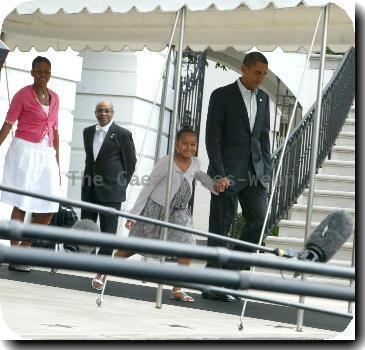Afghan security forces tighten security in Kabul after Taliban attack
By Rahim Faiez, APTuesday, January 19, 2010
Afghans tighten security in Kabul after attack
KABUL — Two U.S. service members were killed by a roadside bomb in southern Afghanistan on Tuesday, a day after a brazen Taliban attack on the capital showed militants are stepping up their fight against the U.S. and its allies.
The southern Taliban heartland has seen intense fighting and is expected to be the destination for most of the 30,000 U.S. reinforcements being sent by President Barack Obama. A NATO statement gave no other details about the latest U.S. deaths.
Also Tuesday, Afghan forces increased the number of checkpoints and patrols in the capital amid public anger over security lapses that enabled a small group of militants mount a series of suicide explosions and gunbattles the day before.
President Hamid Karzai ordered a review of security measures in the capital but said Afghan troops should be praised for their performance in preventing an even bigger disaster as the non-militant death toll stood at five — three security forces and two civilians, including a child.
Troops searched vehicles entering the capital as well as on the main streets in the city center, verifying documents and pulling suspicious cars aside with an increased number of checkpoints, foot patrols and vehicle patrols.
Analysts said the attack didn’t reflect a stronger Taliban but did expose deficiencies in the security apparatus,
“The Taliban have only one possibility and that is to blow themselves up. But unfortunately the Taliban can infiltrate Kabul or other major cities for terrorist attacks because of the weak state of the police,” said Taj Mohammad Wardak, a former interior minister.
He said police need more training and higher salaries, adding that Monday’s casualty toll could have been worse if the Afghan army hadn’t stepped in to help.
Many Afghans expressed frustration that a handful of gunmen and suicide bombers were able to paralyze the city of 4 million for hours.
Mohammad Nasir, a taxi driver, said the government needs to do more to stop foreign attackers from crossing the border.
“They always say that these attackers are coming from outside, but they don’t have wings to fly from the sky and come here, so they come from the ground,” he said. “If we had professional Afghan forces, they could stop them … but we see we don’t have professional forces to keep them from coming.”
Afghan intelligence chief Amrullah Saleh also said the militants were increasing the number of suicide attacks in populated areas to cover up their weaknesses and to undermine the leadership of national institutions.
He claimed the success rate of security forces against suicide bombings has increased to 60 percent over the past year, meaning they foil six of every 10 attempts.
On Monday, seven attackers either blew themselves up with suicide vests or died in fierce gunbattles. The civilian casualty toll, meanwhile, was relatively low. Most of the 71 people wounded suffered light injuries, according to hospital officials
One man who owned a store in a shopping center that was the site of one of the fiercest standoffs on Monday said the militants told the manager to evacuate the building before the fighting started.
“They did not take anyone hostage. They had Kalashnikovs, but we came out without any harm,” Abdul Ghafar said Tuesday as he surveyed the charred exterior of the building.
The attack, however, sent a message that the mostly rural Taliban are prepared to strike at the heart of the Afghan state even as the United States and its international partners are rushing 37,000 reinforcements to join the eight-year war.
It was the biggest assault on the capital since Oct. 28, when three gunmen with automatic weapons and suicide vests stormed a guest house used by United Nations staff, killing at least 11 people including five U.N. workers.
“The government should maintain good security at the four main entrances of Kabul city and should not let the suicide attackers and bad people enter our land and kill innocent people,” resident Mohammad Amin said.
Associated Press writer Rahim Faiez contributed to this report.
Tags: Afghanistan, As-afghanistan, Asia, Atlanta, Australia And Oceania, Barack Obama, Central Asia, Georgia, Kabul, Kidnapping, Municipal Governments, New Zealand, North America, Terrorism, United States



